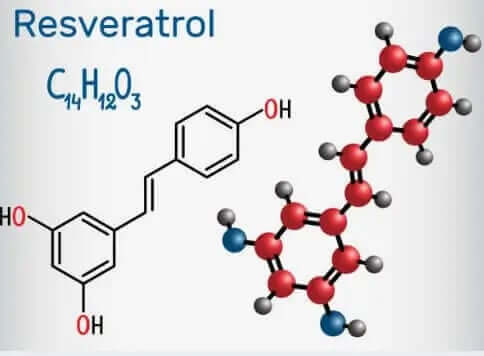Turmeric Curcumin for Fibromyalgia: Complete Guide to Natural Pain Relief and Symptom Management
Fibromyalgia affects millions of people worldwide, creating a complex web of chronic pain, fatigue, and emotional distress that can significantly impact quality of life. According to the U.S. Centers for Disease Control and Prevention, this challenging condition impacts 2% of the adult population across the nation, leaving many searching for effective, natural approaches to manage their symptoms. The search for relief has led many to explore turmeric curcumin fibromyalgia treatments, as this golden compound from turmeric root offers promising anti-inflammatory properties that may help address the underlying mechanisms driving fibromyalgia symptoms.
Understanding how turmeric curcumin fibromyalgia connections work begins with recognizing that fibromyalgia involves abnormal pain processing, causing individuals to experience heightened sensitivity to pain and widespread discomfort throughout the body. This condition often leads to debilitating fatigue, sleep disturbances, cognitive difficulties often called "fibro fog," and significant emotional distress that can affect every aspect of daily life. While the exact cause of fibromyalgia remains unknown, researchers have identified inflammation and dysregulated pain pathways as key factors, making the anti-inflammatory properties of curcumin particularly relevant for symptom management.
This comprehensive guide explores the emerging research on turmeric curcumin fibromyalgia applications, examining how this natural compound may offer hope for those seeking effective pain management solutions. From understanding the science behind curcumin's effects on pain processing to practical strategies for incorporating this powerful compound into your fibromyalgia management plan, this resource provides evidence-based insights that can help transform your approach to living with this challenging condition.
Understanding Fibromyalgia: The Complex Challenge of Chronic Pain
Fibromyalgia represents one of the most misunderstood and challenging chronic pain conditions, affecting an estimated 4 million adults in the United States alone. This complex disorder goes far beyond simple muscle pain, involving fundamental changes in how the nervous system processes pain signals throughout the body. Understanding these underlying mechanisms helps explain why traditional pain management approaches often fall short and why turmeric curcumin fibromyalgia research has generated such interest among both patients and healthcare providers.
The hallmark feature of fibromyalgia is widespread musculoskeletal pain accompanied by tenderness in specific trigger points throughout the body. However, the condition extends beyond pain to include a constellation of symptoms that can vary significantly between individuals and even within the same person over time. These symptoms often include chronic fatigue that doesn't improve with rest, sleep disturbances that prevent restorative sleep, cognitive difficulties affecting memory and concentration, mood changes including anxiety and depression, and heightened sensitivity to light, sound, and touch.
Research has revealed that fibromyalgia involves central sensitization, a process where the central nervous system becomes hyperactive and amplifies pain signals. This explains why individuals with fibromyalgia often experience severe pain from stimuli that wouldn't normally cause discomfort, such as light touch or gentle pressure. The condition also involves dysregulation of neurotransmitters including serotonin, norepinephrine, and substance P, which play crucial roles in pain perception and mood regulation.
The inflammatory component of fibromyalgia has become increasingly recognized as an important factor in symptom development and progression. While fibromyalgia was once considered a purely neurological condition, emerging research indicates that chronic low-grade inflammation may contribute to the pain amplification and other symptoms experienced by patients. This inflammatory aspect provides a compelling rationale for exploring turmeric curcumin fibromyalgia applications, as curcumin's potent anti-inflammatory properties may help address this underlying mechanism.
The Science Behind Turmeric Curcumin for Fibromyalgia Relief
The growing interest in turmeric curcumin fibromyalgia research stems from curcumin's remarkable ability to modulate multiple biological pathways involved in pain processing and inflammation. As the primary bioactive compound in turmeric root, curcumin has been extensively studied for its anti-inflammatory, antioxidant, and neuroprotective properties, many of which directly address the underlying mechanisms contributing to fibromyalgia symptoms.
Curcumin's anti-inflammatory effects work through multiple pathways, including inhibition of pro-inflammatory enzymes like cyclooxygenase (COX) and lipoxygenase (LOX), suppression of inflammatory cytokines such as tumor necrosis factor-alpha (TNF-α) and interleukin-6 (IL-6), and modulation of nuclear factor-kappa B (NF-κB), a key regulator of inflammatory gene expression. These comprehensive anti-inflammatory effects may help reduce the chronic inflammation that contributes to fibromyalgia pain and other symptoms.
Beyond its anti-inflammatory properties, curcumin appears to influence pain processing through direct effects on the nervous system. Research suggests that curcumin can modulate neurotransmitter activity, potentially helping to rebalance the dysregulated pain pathways characteristic of fibromyalgia. Studies have shown that curcumin may help reduce excitatory neurotransmitters while supporting inhibitory pathways that normally help control pain signals.
The antioxidant properties of curcumin also play important roles in fibromyalgia management, as oxidative stress has been implicated in the development and progression of chronic pain conditions. By neutralizing harmful free radicals and supporting cellular antioxidant systems, curcumin may help protect nerve cells from damage and support overall nervous system health.
Research Evidence: Clinical Studies on Turmeric Curcumin Fibromyalgia Benefits
The scientific evidence supporting turmeric curcumin fibromyalgia applications continues to grow, with several clinical studies demonstrating promising results for symptom management and quality of life improvements. While research in this area is still emerging, the existing studies provide compelling evidence for curcumin's potential as a natural adjunct therapy for fibromyalgia management.

Breakthrough Clinical Trial Results
A groundbreaking randomized controlled clinical trial involving 13 women diagnosed with fibromyalgia provided the first direct evidence of turmeric curcumin fibromyalgia benefits. In this study, researchers observed significant differences in pain disturbances affecting work activities after just one month of turmeric supplementation. Participants reported improved ability to perform daily tasks and reduced interference from pain in their professional activities, suggesting that curcumin may help restore functional capacity in fibromyalgia patients.
This study was particularly significant because it focused on real-world outcomes that matter most to fibromyalgia patients—the ability to maintain productivity and engage in meaningful activities despite chronic pain. The relatively rapid onset of benefits, observed within just four weeks, suggests that curcumin may provide relatively quick relief for some fibromyalgia symptoms.
Comprehensive Symptom Relief Study
A larger study involving 62 people with fibromyalgia provided even more compelling evidence for turmeric curcumin fibromyalgia applications. In this six-week trial, participants taking curcumin supplements experienced significant improvements in multiple fibromyalgia symptoms, including widespread pain, dizziness, muscle cramps, and burning sensations throughout the body.
The broad spectrum of symptom improvements observed in this study is particularly noteworthy, as it suggests that curcumin may address multiple aspects of fibromyalgia rather than simply masking pain. The reduction in burning sensations and muscle cramps indicates that curcumin may help normalize nerve function and reduce the hypersensitivity characteristic of fibromyalgia.
Mechanistic Research: Understanding How Curcumin Works
Researchers at Texas Tech University Health Sciences Center have conducted important mechanistic studies to understand exactly how curcumin may benefit fibromyalgia patients. Their research involved animal models that replicated fibromyalgia-like symptoms, providing insights into the biological mechanisms underlying curcumin's therapeutic effects.
In these studies, researchers found that curcumin decreased visceral hyperalgesia (heightened pain sensitivity in internal organs) and reduced abnormal responses to painful stimuli. The research revealed that curcumin works by decreasing activation of TRPV1 receptors, which are involved in pain sensation, and by reducing hypersensitivity of nerve fibers that transmit pain signals.
As the Texas Tech researchers concluded: "Two experimental FM-like symptoms models on animals were conducted by Zhi et al. to study the effect of curcumin on gastrointestinal nociception. The first experiment implemented a colorectal distension-induced model, which showed that curcumin decreased visceral hyperalgesia due to a decreased viscero-motor response to colorectal distension in rats. The second experiment used ex vivo mouse jejunum preparations to show a decrease in TRPV1 activation and hypersensitivity of jejunal afferent neurons."
This research demonstrates that curcumin's benefits for fibromyalgia extend beyond simple anti-inflammatory effects to include direct modulation of pain processing pathways. The ability to decrease excitatory neurotransmitters while supporting normal pain processing represents a sophisticated approach to fibromyalgia management that addresses root causes rather than just symptoms.
How Turmeric Curcumin Addresses Fibromyalgia Symptoms
Understanding how turmeric curcumin fibromyalgia benefits work at the molecular level helps explain why this natural compound shows such promise for symptom management. Curcumin's multi-target approach addresses several key aspects of fibromyalgia pathophysiology simultaneously, providing comprehensive support for those struggling with this complex condition.
Pain Processing and Neurological Benefits
Curcumin's effects on pain processing represent one of its most important applications for fibromyalgia management. The compound appears to help normalize the dysregulated pain pathways that characterize fibromyalgia, potentially reducing the amplification of pain signals that causes mild stimuli to be perceived as severely painful.
Research indicates that curcumin can influence the production and activity of neurotransmitters involved in pain perception, including substance P, serotonin, and norepinephrine. By helping to rebalance these chemical messengers, curcumin may help restore more normal pain processing and reduce the hypersensitivity that makes fibromyalgia so debilitating.
The neuroprotective properties of curcumin also play important roles in fibromyalgia management. Chronic pain conditions can lead to changes in brain structure and function over time, and curcumin's ability to protect nerve cells from damage may help prevent or slow these changes while supporting overall nervous system health.
Inflammation Reduction and Immune Support
While fibromyalgia was once thought to be purely a neurological condition, emerging research has revealed important inflammatory components that contribute to symptom development and progression. Curcumin's potent anti-inflammatory properties directly address this aspect of fibromyalgia, potentially helping to reduce the chronic low-grade inflammation that amplifies pain and other symptoms.
The compound's ability to modulate immune system function may also contribute to its fibromyalgia benefits. Many fibromyalgia patients have immune system abnormalities, and curcumin's immunomodulatory effects may help restore more balanced immune function while reducing inflammatory responses that contribute to symptoms.
Sleep and Mood Support
The sleep disturbances and mood changes associated with fibromyalgia often create vicious cycles where poor sleep worsens pain, and increased pain further disrupts sleep. Curcumin's effects on neurotransmitters involved in sleep and mood regulation may help break these cycles by supporting more restful sleep and improved emotional well-being.
Research suggests that curcumin may help regulate circadian rhythms and support the production of neurotransmitters like serotonin that are crucial for both sleep quality and mood stability. These effects can be particularly valuable for fibromyalgia patients who often struggle with depression and anxiety in addition to physical symptoms.
Optimal Dosing and Administration Strategies
Achieving optimal results with turmeric curcumin fibromyalgia treatments requires understanding proper dosing strategies, timing considerations, and factors that influence absorption and effectiveness. The research on fibromyalgia specifically provides some guidance, though individual needs may vary significantly based on symptom severity, body weight, and other factors.
Research-Based Dosing Guidelines
The clinical studies demonstrating turmeric curcumin fibromyalgia benefits have used varying doses, typically ranging from 500mg to 1500mg of curcumin daily. The six-week study showing comprehensive symptom improvements used standardized curcumin extracts rather than whole turmeric powder, suggesting that concentrated formulations may be necessary for therapeutic effects.
Starting with lower doses and gradually increasing based on individual response helps minimize potential side effects while allowing assessment of effectiveness. Many healthcare providers recommend beginning with 500mg daily and increasing to 1000-1500mg daily if needed and well-tolerated.
Absorption Enhancement Strategies
One of the biggest challenges with curcumin supplementation is poor bioavailability, as the compound is rapidly metabolized and eliminated from the body. Several strategies can significantly improve absorption and effectiveness:
- Piperine Enhancement: Taking curcumin with black pepper extract (piperine) can increase absorption by up to 2000%
- Fat-Soluble Formulations: Consuming curcumin with healthy fats or choosing lipid-based formulations improves absorption
- Advanced Delivery Systems: Specialized formulations using nanotechnology, liposomes, or micelles can dramatically improve bioavailability
- Timing with Meals: Taking curcumin with meals, particularly those containing fats, enhances absorption while reducing stomach upset
Quality and Formulation Considerations
The quality and formulation of curcumin supplements can significantly impact their effectiveness for fibromyalgia symptoms. Look for products that provide standardized curcumin content, third-party testing for purity, and enhanced absorption technologies. Products specifically formulated for therapeutic applications often provide superior results compared to basic turmeric powders or low-quality extracts.
Comprehensive Fibromyalgia Management: Beyond Curcumin
While turmeric curcumin fibromyalgia research shows promising results, the most effective approach to managing this complex condition typically involves comprehensive strategies that address multiple aspects of health and well-being. Curcumin works best as part of integrated treatment plans that include lifestyle modifications, nutritional support, and other evidence-based interventions.
Sleep Optimization Strategies
Quality sleep represents one of the most crucial factors in fibromyalgia management, as poor sleep can significantly worsen pain and other symptoms. Lifestyle modifications recommended by healthcare experts include:
- Sleep Duration: Aim for 8-9 hours of sleep each night to support healing and recovery
- Sleep Hygiene: Maintain consistent sleep schedules, create optimal sleep environments, and avoid stimulants before bedtime
- Stress Reduction: Practice relaxation techniques, meditation, or gentle yoga to reduce stress that can interfere with sleep
- Pain Management: Use curcumin and other natural approaches to reduce pain that can disrupt sleep quality
Immune System Support
Supporting immune system function can help reduce the frequency and severity of fibromyalgia flares, as viral and bacterial infections often trigger symptom exacerbations. Strategies for immune support include maintaining good hygiene, managing stress levels, getting adequate nutrition, and using immune-supporting supplements when appropriate.
The connection between immune function and fibromyalgia symptoms makes immune support particularly important for long-term management. Curcumin's immunomodulatory effects complement other immune-supporting strategies, potentially providing synergistic benefits for overall health and symptom control.
Exercise and Physical Activity
Regular physical activity, when properly implemented, can significantly improve fibromyalgia symptoms and quality of life. The U.S. Department of Health and Human Services recommends that adults engage in at least 2.5 hours per week of moderate cardiovascular activity, along with strength training exercises at least twice weekly.
For fibromyalgia patients, exercise programs should be:
- Gradual: Start slowly and increase intensity and duration gradually to avoid triggering flares
- Low-Impact: Choose activities like walking, swimming, or gentle yoga that don't stress joints excessively
- Consistent: Regular, moderate exercise provides better benefits than sporadic intense activity
- Individualized: Adapt exercise programs to personal capabilities and current symptom levels
Nutritional Optimization
Proper nutrition plays crucial roles in fibromyalgia management, providing the building blocks needed for healing and supporting optimal nervous system function. Key nutrients that are particularly important for fibromyalgia patients include:
- Vitamin B-12: Essential for nerve function and energy production
- Magnesium: Important for muscle function, pain regulation, and sleep quality
- Acetyl L-Carnitine: Supports cellular energy production and may help with fibro fog
- Glutathione: A powerful antioxidant that supports detoxification and cellular protection
- Iodine: Important for thyroid function, which is often compromised in fibromyalgia patients
Advanced Curcumin Formulations for Fibromyalgia
The effectiveness of turmeric curcumin fibromyalgia treatments can be significantly enhanced through advanced formulation technologies that address the bioavailability challenges inherent in standard curcumin supplements. Understanding these technological advances helps patients choose products that are most likely to provide meaningful symptom relief.
RevGenetics MetaCurcumin represents a breakthrough in curcumin supplementation technology, featuring 277x enhanced absorption compared to standard curcumin formulations. This advanced product combines TetraHydroCurcuminoids with nano-sized micelle technology to create the most bioavailable curcumin supplement available today, with 94% of users rating it 4 or 5 stars for overall health benefits.
The superior absorption achieved through this advanced formulation means that lower doses can provide therapeutic benefits equivalent to much higher doses of standard curcumin. This enhanced efficiency reduces the pill burden while maximizing therapeutic potential, making it particularly valuable for fibromyalgia patients who may be taking multiple supplements and medications.
The TetraHydroCurcuminoid component provides additional benefits beyond standard curcumin, as these metabolites have been shown to have enhanced anti-inflammatory and antioxidant properties. This comprehensive approach to curcumin supplementation addresses multiple aspects of fibromyalgia pathophysiology simultaneously.
Safety Considerations and Drug Interactions
While turmeric curcumin fibromyalgia treatments are generally well-tolerated and safe for most people, understanding potential side effects and drug interactions ensures safe and effective use. This is particularly important for fibromyalgia patients who may be taking multiple medications for pain management and other symptoms.
Common Side Effects and Management
Most people tolerate curcumin supplementation very well, but some may experience mild side effects, particularly when starting supplementation or using higher doses. The most common side effects include:
- Gastrointestinal Upset: Mild stomach irritation, nausea, or diarrhea, usually preventable by taking with food
- Increased Bleeding Risk: Curcumin may enhance the effects of blood-thinning medications
- Allergic Reactions: Rare but possible, particularly in people allergic to turmeric or related plants
Important Drug Interactions
Curcumin may interact with several types of medications commonly used by fibromyalgia patients:
- Anticoagulants: May enhance blood-thinning effects of warfarin, heparin, and similar medications
- Diabetes Medications: May enhance blood sugar-lowering effects
- Chemotherapy Drugs: May interfere with certain cancer treatments
- Iron Supplements: May reduce iron absorption when taken simultaneously
Healthcare provider consultation is particularly important for fibromyalgia patients considering curcumin supplementation, as they can assess individual risk factors and monitor for potential interactions with existing treatments.
Frequently Asked Questions About Turmeric Curcumin for Fibromyalgia
Can turmeric curcumin help with fibromyalgia pain?
Research suggests turmeric curcumin may help manage fibromyalgia symptoms through its anti-inflammatory properties. Studies show participants experienced reduced widespread pain, burning sensations, and improved daily function after taking curcumin supplements for 4-6 weeks, though it cannot cure fibromyalgia.
How much curcumin should I take for fibromyalgia?
Fibromyalgia studies have used curcumin doses ranging from 500-1500mg daily. However, optimal dosing varies by individual. Start with lower doses and consult healthcare providers for personalized recommendations, especially when managing chronic pain conditions like fibromyalgia.
How long does it take for turmeric curcumin to work for fibromyalgia?
Research shows fibromyalgia patients may notice improvements in pain and daily function within 1-6 weeks of consistent curcumin supplementation. However, individual response times vary, and some people may experience benefits sooner or require longer periods to see results.
Are there side effects of using curcumin for fibromyalgia?
Curcumin is generally well-tolerated, but some people may experience mild gastrointestinal upset, especially when starting supplementation. Curcumin can interact with blood thinners and other medications, so consult healthcare providers before use, particularly for chronic conditions like fibromyalgia.
What makes curcumin effective for fibromyalgia symptoms?
Curcumin's anti-inflammatory properties may help reduce the chronic inflammation associated with fibromyalgia. Research indicates it can decrease excitatory neurotransmitters, reduce pain sensitivity, and modulate pain processing pathways that are dysregulated in fibromyalgia patients.
Can I use turmeric curcumin with other fibromyalgia treatments?
Turmeric curcumin may complement other fibromyalgia treatments including medications, physical therapy, and lifestyle modifications. However, always consult healthcare providers before combining supplements with existing treatments to ensure safety and avoid potential interactions.
What's the best form of curcumin for fibromyalgia?
Enhanced absorption formulations like those with piperine, liposomal delivery, or specialized micelle technology provide better bioavailability than standard curcumin. Products like RevGenetics MetaCurcumin offer superior absorption rates, potentially providing better results for fibromyalgia symptom management.
Should I take curcumin on an empty stomach for fibromyalgia?
Curcumin absorption can be enhanced when taken with food, particularly meals containing healthy fats. This may also reduce potential stomach upset. However, follow specific product instructions and healthcare provider recommendations for optimal timing and dosing for fibromyalgia management.
Can dietary turmeric help with fibromyalgia or do I need supplements?
While dietary turmeric provides some curcumin, therapeutic levels for fibromyalgia symptoms typically require concentrated supplements. Research studies showing fibromyalgia benefits used standardized curcumin extracts rather than dietary turmeric, suggesting supplements may be more effective for symptom management.
Are there other natural approaches that work well with curcumin for fibromyalgia?
Yes, curcumin works well as part of comprehensive fibromyalgia management including regular gentle exercise, stress reduction techniques, adequate sleep (8-9 hours), immune system support, and proper nutrition with B-12, magnesium, and other essential nutrients for fibromyalgia support.
Creating Your Turmeric Curcumin Fibromyalgia Management Plan
Developing an effective turmeric curcumin fibromyalgia treatment strategy requires a systematic approach that integrates supplementation with lifestyle modifications and ongoing monitoring. The most successful patients often follow structured plans that address multiple aspects of their condition while allowing for individual customization based on response and changing needs.
Step-by-Step Implementation Strategy
Begin your turmeric curcumin fibromyalgia journey with a gradual, monitored approach that maximizes benefits while minimizing potential side effects:
- Healthcare Provider Consultation: Discuss curcumin supplementation with your healthcare team, especially if you take medications or have other health conditions
- Baseline Assessment: Document current pain levels, sleep quality, daily function, and other symptoms before starting supplementation
- Quality Product Selection: Choose high-bioavailability curcumin supplements from reputable manufacturers with third-party testing
- Gradual Introduction: Start with lower doses (500mg daily) and increase gradually based on tolerance and response
- Consistent Monitoring: Track symptoms, sleep quality, and functional improvements weekly during the first month
- Lifestyle Integration: Combine curcumin supplementation with sleep optimization, gentle exercise, and stress management
- Long-term Optimization: Adjust dosing and timing based on results and work with healthcare providers for ongoing management
Monitoring Progress and Adjusting Treatment
Successful turmeric curcumin fibromyalgia management requires ongoing assessment and adjustment based on individual response patterns. Keep detailed records of pain levels, sleep quality, energy levels, and daily function to identify trends and optimize your treatment approach.
Many patients find it helpful to use pain and symptom tracking apps or journals that allow for consistent monitoring over time. This data becomes invaluable for healthcare providers when making treatment adjustments and can help identify patterns that might not be obvious otherwise.
The Future of Natural Fibromyalgia Management
The growing body of research on turmeric curcumin fibromyalgia applications represents just the beginning of what promises to be an exciting evolution in natural approaches to chronic pain management. As our understanding of fibromyalgia mechanisms continues to deepen, new opportunities for targeted interventions using compounds like curcumin are likely to emerge.
Ongoing research is investigating combination approaches that pair curcumin with other natural compounds, optimal dosing protocols for different fibromyalgia subtypes, and personalized treatment strategies based on individual genetic and biochemical factors. These advances may soon allow for more precise, effective natural treatments that address the unique needs of each fibromyalgia patient.
The integration of natural compounds like curcumin with conventional fibromyalgia treatments also represents a promising direction for future care. Rather than viewing natural and conventional approaches as competing alternatives, the most effective future treatments may combine the best of both worlds to provide comprehensive symptom relief and improved quality of life.
Hope and Healing: Your Path Forward with Turmeric Curcumin
Living with fibromyalgia can feel overwhelming, but the emerging research on turmeric curcumin fibromyalgia benefits offers genuine hope for improved symptom management and enhanced quality of life. While curcumin cannot cure fibromyalgia, the evidence suggests it may provide meaningful relief for many of the symptoms that make this condition so challenging to live with.
The key to success lies in approaching curcumin supplementation as part of a comprehensive fibromyalgia management strategy that addresses sleep, exercise, nutrition, stress management, and other factors that influence symptom severity. This holistic approach, combined with high-quality curcumin supplementation, may help you regain control over your symptoms and reclaim activities that fibromyalgia has made difficult.
Remember that fibromyalgia affects everyone differently, and what works for one person may not work for another. Be patient with yourself as you explore curcumin supplementation, and don't hesitate to work with healthcare providers who understand both fibromyalgia and natural treatment approaches.
If you're ready to explore the potential benefits of turmeric curcumin for your fibromyalgia symptoms, consider trying MetaCurcumin 277x Super Curcumin + TetraHydroCurcumin from RevGenetics. This advanced formulation offers superior absorption and bioavailability, potentially providing better results for fibromyalgia symptom management than standard curcumin supplements.
Your journey toward better fibromyalgia management begins with taking the first step. With the right combination of natural approaches, lifestyle modifications, and professional support, it's possible to reduce symptoms, improve function, and enhance your overall quality of life. The research on turmeric curcumin fibromyalgia benefits provides a foundation of hope that better days are possible, even with this challenging condition.
Contact RevGenetics at 888-738-4363 with any questions about incorporating advanced curcumin supplementation into your fibromyalgia management plan. Their knowledgeable team can provide guidance on optimal dosing, timing, and integration with your existing treatment approaches to help you achieve the best possible outcomes.







